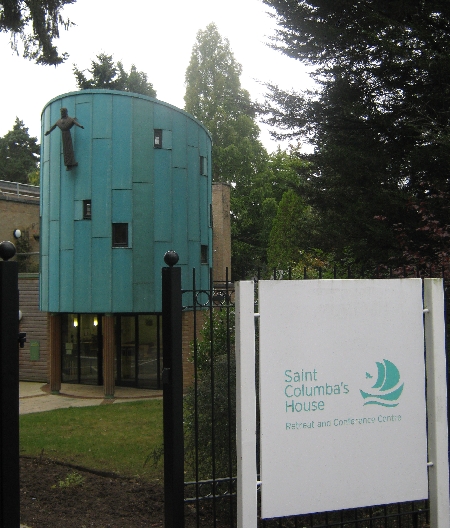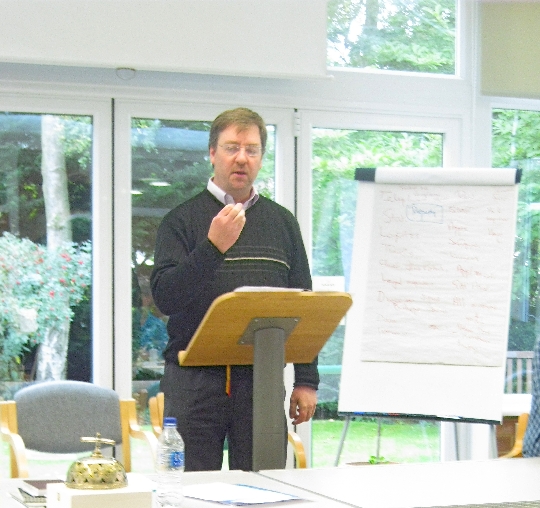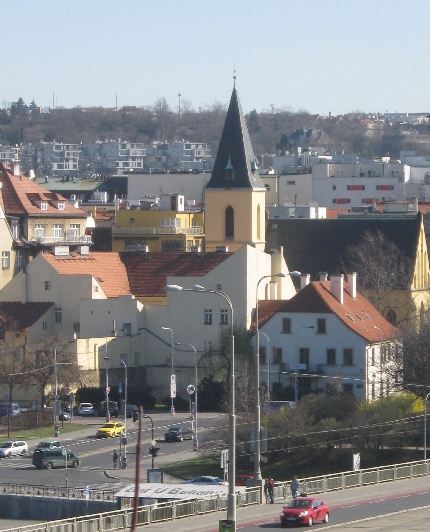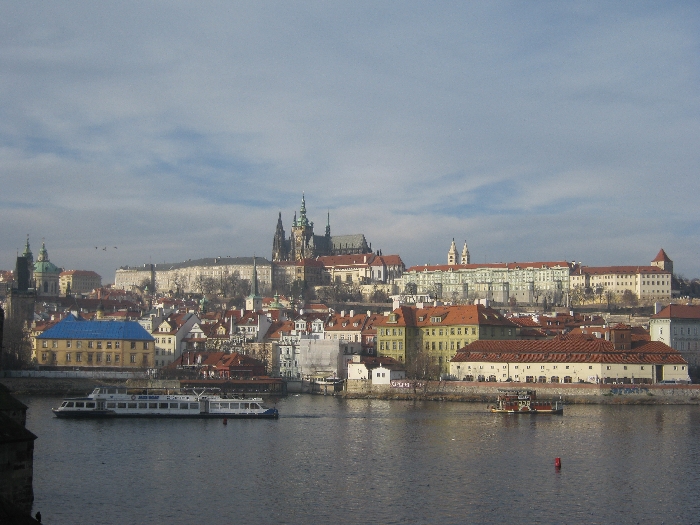
On the first day of 2014, it seems good to think and write about the year ahead and what it might have in store for Sybille and I, for the Anglican congregations in Prague and Brno that I lead, and for the wider Czech Republic. What follows is what I’m currently contemplating, but as always, God might have other ideas 🙂
New leadership of State and Church
It does appear that, more than two months after elections at the end of October, the Czech Republic will once again, shortly have a properly functioning government which is able to command a majority in the lower house of parliament. It will be a three-party coalition, with Bohuslav Sobotka, the leader of the Social Democratic Party (CSSD), as Prime Minister.
However, one can never be sure, especially as all ministerial appointments have to be approved by President Miloš Zeman. Whilst the three political parties who will form the coalition have agreed on the number of ministries they will each control, the names of those proposed as ministers have yet to be made public. Several likely ministerial candidates from the CSSD are people Zeman fell out with before leaving the CSSD some ten years ago. Apparently, according to press reports, the President has indicated that he might refuse to formally appoint some of these individuals, should they be nominated.
If this happens, the matter will probably end up with a complaint to the Constitutional Court, seeking a ruling as to the extent of presidential powers. I do hope that all sides will see common sense and put the well-being of the country ahead of settling old personal and political scores.
It also does appear, that sometime in the coming Spring, the name of the next Anglican Bishop of the Diocese in Europe, will be announced. He, (sadly no chance of ‘she’ just yet), will succeed Rt Rev’d Dr Geoffrey Rowell, who retired in early November 2013. If you want to know more about what lies ahead for my next Bishop, see this link to the ‘Description of the Diocese and Statement of Needs‘.
I do find it absurd that, having known since early 2013, the date of Bishop Geoffrey’s retirement, it is only now that the process of appointing his successor is underway. What other major organisation, knowing the date of the forthcoming retirement of its CEO, would not have appointed their successor and had them ready to take over straight-away, thus ensuring a smooth transition? I do think that this is where the Church of England does need a complete rethink. I experienced a very similar situation previously in the Diocese of Oxford where we were without a Diocesan Bishop for around eighteen months.
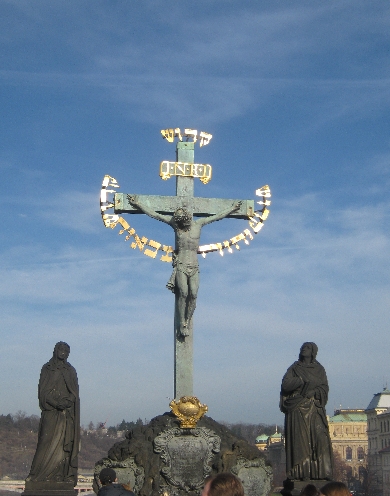
The Liturgical Year ahead
This year, Easter Day is quite late, falling on Sunday 20th April. This is vastly preferable as far as I’m concerned, in comparison to 2013 when Easter Day was 31st March, the clocks went forward one hour overnight the night before, and there was snow on the ground in Brno.
What it also means is that there is a far longer period of ‘Ordinary Time’, between the end of the Epiphany season on 2nd February, the Feast of the Presentation of Christ in the Temple, and the beginning of Lent on Ash Wednesday, which with Easter Day being late, in 2014 falls on Wednesday 5th March.
Therefore, with now being in Year A of the three-year cycle of readings from the Revised Common Lectionary when the Gospel of Matthew predominates, throughout February, the Sunday readings focus on sections of the Sermon on the Mount. This should certainly make for interesting preaching material!
However, I note that during Lent, we also get several large chunks of the Gospel of John each Sunday. Appropriate Lenten penance, both in the time it takes to read the passages as well as then trying to expound them 🙂
Family, holidays and travel
I am looking forward to my son Phillip and his girlfriend Lisa, coming to Prague for a long weekend visit at the end of February. The dates of their visit were partly governed by when jet2.com are scheduled to resume their East Midlands Airport – Prague flights after a post-Christmas/New Year hiatus of seven weeks.
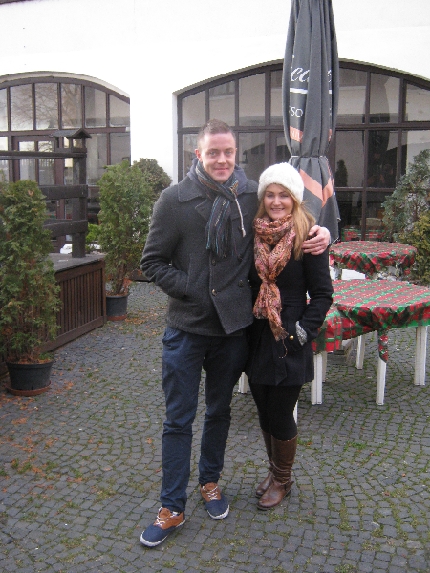
But I’ve since discovered that the weekend they are here, is when the Czech Gambrinus Football League resumes matches following their current mid-winter break. It means that Phillip and I can go and see Dukla Praha play in their stadium which lies directly behind where the Chaplaincy Flat is located, something we’ve talked about doing for the past four years. Dukla will be home to FK Teplice – a fourth versus third-in-the-table clash, which should be most enjoyable. Sybille has promised to take Lisa for a ‘Girls night out’ 🙂
After last year’s Intercontinental Church Society (ICS) Chaplains and Families Conference being held in Switzerland, this year the ICS conference will be in the UK, between Monday 12th – Friday 16th May, in a Conference Centre on the Leicestershire-Northamptonshire border, near Market Harborough. As this location lies almost equidistant between my daughter and son-in-law’s home in Daventry, and Phillip’s home in Nottingham, my plan is to take a week of annual leave following the conference, and spend time with both of them.
I have also been doing some price comparisons and have decided that probably the cheapest, and certainly the most convenient way to travel, will be to drive back to the UK, meaning the first time my right-hand-drive car, will have been driven on the left side of the road, for nearly six years. This will allow me easy movement around the UK which will hopefully also include a trip to the south coast to see one or both of my sisters.
The other big family news I hinted at, in reply to a comment on an earlier post about ‘Discovering the Way of St. James in the Czech Republic‘. Probably starting in late May/early June, Sybille is planning to make a long distance pilgrimage and walk from Prague, all the way to Santiago de Compostela in north-west Spain. We reckon that she will need somewhere in the region of four months to complete the journey, meaning that she will not be back in Prague until probably early October.
Provisionally, I am planning to take a couple of weeks of annual leave in July-August, and walk with her through part of France. I may well be able to bring back some things she will not require in Spain, thus lightening her load.
Eastern Archdeaconry Synod
Further ahead, at the end of September, there will be the annual meeting of the Eastern Archdeaconry Synod which in 2014, as I previously indicated, is being hosted by the Prague Anglican congregation. I’m very much looking forward to it, especially if we by then, finally have a Diocesan Bishop who is able to join us. But there is a lot of planning and organisational work to undertake in the meantime.

